Stakeholder Dialogue
Materiality essential to sustainable development
(December 2018)
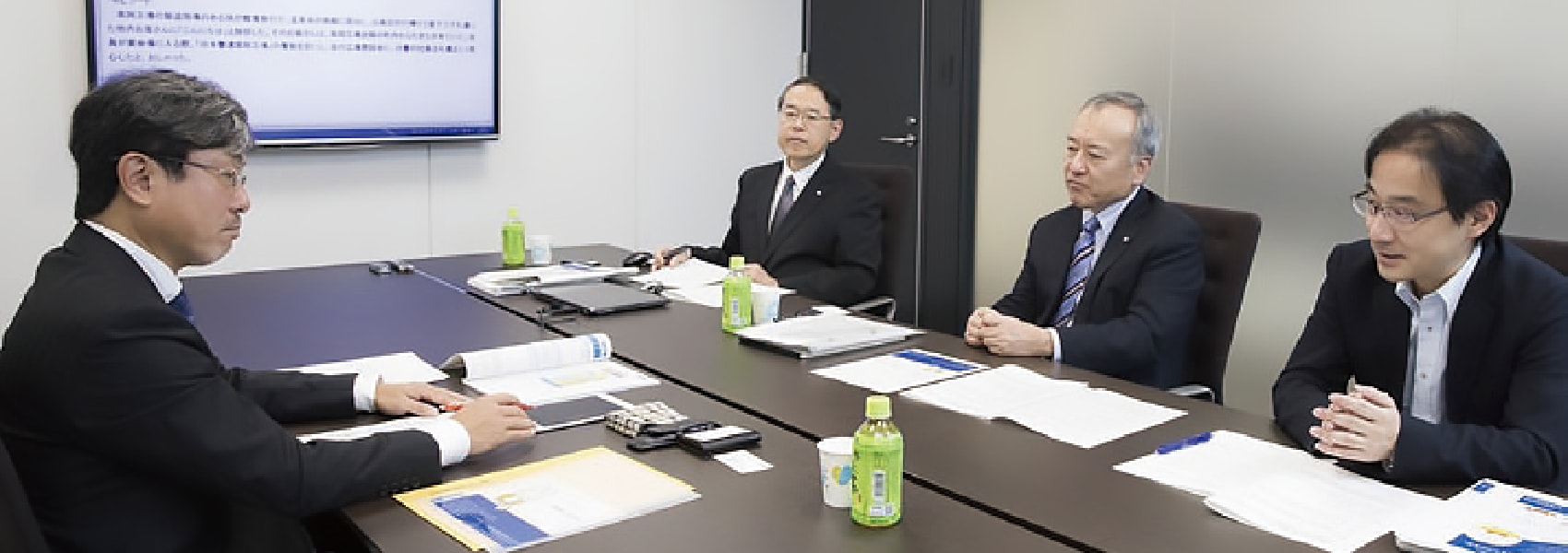
Materiality essential to sustainable development
A stakeholder dialogue was held with experts from outside the Nippon Soda Group on the theme of “CSR activities to improve corporate value,” which aim to increase the positive effect on society, for the purpose of discussing materiality for a chemical company that creates innovative products useful in achieving a sustainable society.
Participants
Experts from outside the Nippon Soda Group
Administration Manager, Institutional Investors Collective Engagement Forum
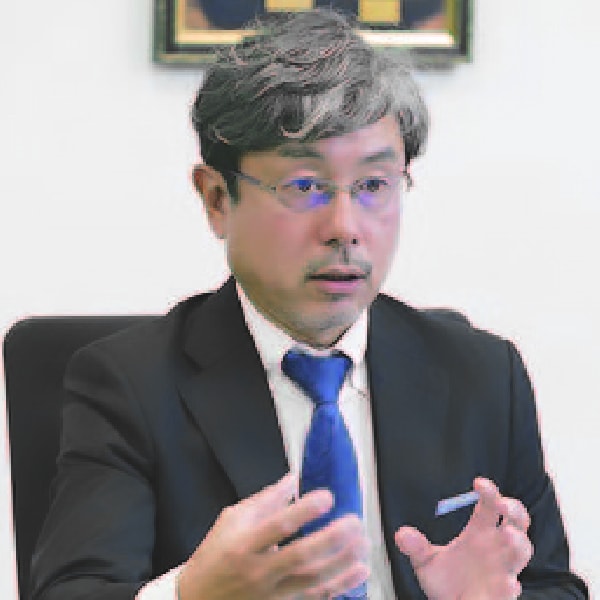
Nippon Soda
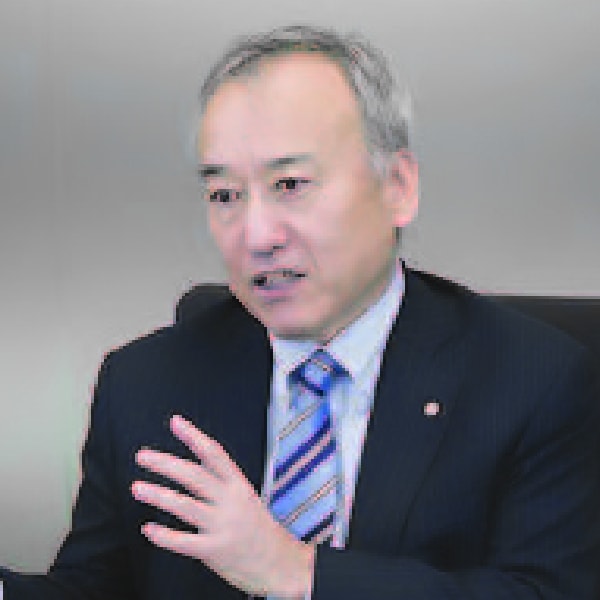
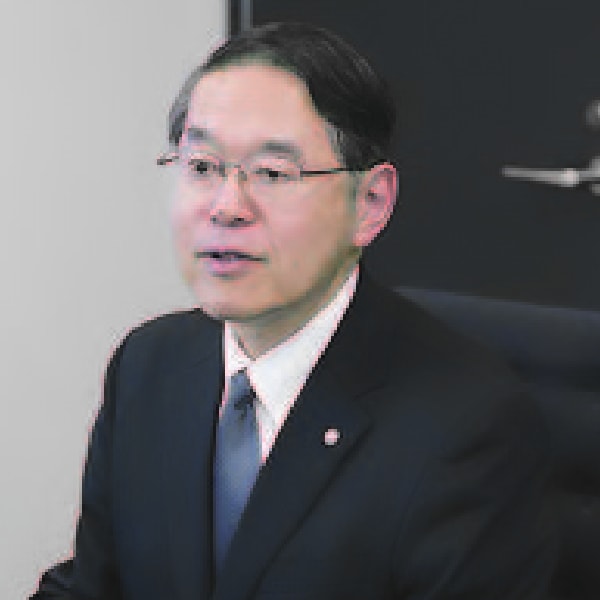
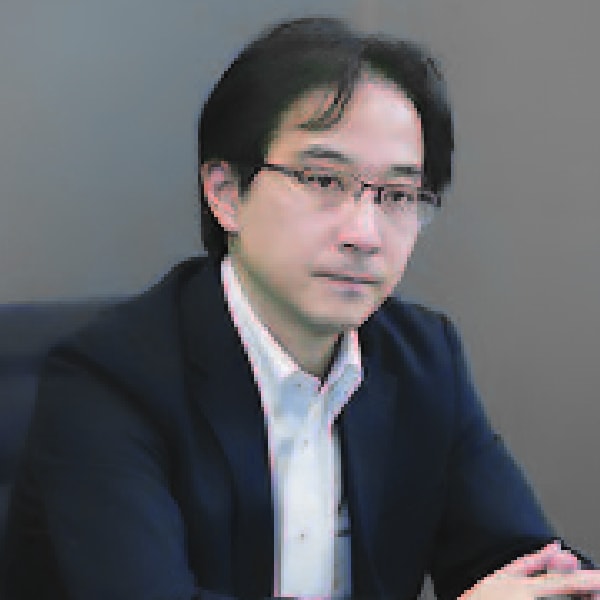
Note: The position and job titles of the participants are those effective as of December 2018.
Note: Titles omitted in the text
History of the Nippon Soda Group
(RC、CSR)
- August 1998
- Declaration on Responsible Care (RC)
- April 2012
- Declaration on Corporate Social Responsibility (CSR)
- April 2014
- Adoption of CSR practices in eight Group companies in Japan
- November 2015
- 1st Stakeholder Dialogue
Material issues were identified and relevant efforts were started. - December 2016
- 2nd Stakeholder Dialogue
- December 2017
- 3rd Stakeholder Dialogue
- December 2018
- 4th Stakeholder Dialogue
Business activities associated with CSR materiality to improve the corporate value
| Agriculture domain | Initiatives for achieving sustainable agriculture: smart agriculture, drones, seed treatment, microbial pesticides |
|---|---|
| Medicine domain | Healthy life supported by medicine: small easy-to-swallow tablets, longer-lasting effects, preparation of tablets by 3D printing |
| Information domain | Potential of high-performance materials: environmentally friendly high-performance materials, copper-clad laminates for next-generation communications, microfabrication of photoresist materials |
| Environment domain | Achievement of environmentally sound recycling: Sketoile and toilet gel for disaster use |
Theme① Environmental and social issues that significantly affect the sustainability of business models
What kind of long-term impact will environmental and social issues have on business activities?
- Understand social issues from a global perspective, such as decline in the working population, aging population and declining birth rates in some regions, coupled with population explosion on a global scale.
- In addition to contributions to securing food sources (stable food yields) using agrochemicals, we are considering promoting innovation by taking advantage of the strengths of our existing businesses through promoting research and development covering the entire agricultural value chain.
We understand there are high expectations from users for labor saving and safe agriculture. - For example, we believe that a new seed treatment technique to coat seeds can contribute not only to reducing farm labor but also reducing the environmental impact of agrochemicals. We will consider partnerships with other companies to further expand the application of the technique globally.
Environmental and social issues these days directly affect business management. In response, industries and sectors have seen a paradigm shift in their business models. In such a business environment, it is important for companies to correctly identify issues critical to them and to implement long-term strategies for resilience designed to respond to change in 10, 20, and 30 years’ time.
Theme② Potential “game change” and transformation
If a “game change” occurs, how would business activities need to change?
- The regional characteristics of agriculture will significantly change due to climate change. The types of agrochemicals may also need to change, which can provide new business opportunities. In 2015, we opened the Sarabetsu Experiment Field in Sarabetsu Village in Hokkaido by taking into account environmental issues, where researchers have started research on the influence of regional climate and the new potential of agrochemicals.
- In the domains of information and health care in the chemicals business, we will continue to serve as a material manufacturer with emphasis on addressing issues to respond to market demand with resilience. For example, as a world-leading company in terms of technology to make active ingredients of pharmaceutical excipients work, we will create new markets by “multiplying” this proprietary technology through social change.
There has been a move to incorporate the advancement of artificial inteligence (AI) and the Internet of Things (IoT), global environmental issues, and solutions for population issues into strategies for sustainable growth. There has already been a significant change in the automotive industry. In other markets too, a “game changing event” that nobody can predict could be triggered by any new development, such as a change in the distribution channel or the entry of a new player. Investors are carefully observing what kind of game changes companies are anticipating and responding to.
Theme③ Developing and passing on our corporate philosophy and culture, and improving corporate ethics
How have we contributed to social sustainability? How can we achieve a sustainable society?
- Our corporate culture has placed primary emphasis on “safety and quality” for many years. This culture enables us to develop products that fulfill the dreams of the next generation and achieve sustainable growth through the power of chemistry.
- Both companies and employees are citizens. It is essential for companies to be generally accepted in order to ensure their sustainability. In this respect, we have placed emphasis on ensuring compliance.
- We will further ensure corporate ethics are observed and will take a backcasting approach to ensuring wellfunctioning corporate governance that responds to the change of the times.
To achieve the sustainable growth of a company, changes in governance are required. Investors are carefully judging the effectiveness of the company’s governance, with emphasis not only on the governance system but also on its function. The company is required to make strategic decisions more boldly and promptly than ever. To strengthen corporate governance, it should be aligned with corporate ethics. It is also important that all employees are well informed of the corporate ethics policy.
The Nippon Soda Group undertakes business activities in compliance with corporate ethics. I would like to focus my attention on how the Group understands long-term social changes and what approach it takes to achieve a sustainable society.
- The Group tries to understand the impact of environmental and social issues on business activities from the perspective of opportunities and risks, and not only establishes a system but also creates an organization that functions well.
- Significant changes are awaiting agrochemicals. The Group is undertaking transformation efforts in labor saving and streamlining in a way unique to an agrochemical manufacturer, with an eye on a potential “game change” in social issues.
- Nippon Soda’s corporate culture with primary emphasis on safety and quality has served as a source for sustainable growth. Corporate ethics are observed by all of its companies, including overseas group companies.
- To steadily promote materiality and risk management, the Company is making well-designed efforts to improve the effectiveness of its corporate governance.
Materiality with an eye toward medium- and long-term growth
(December 2017)
We held a dialogue with experts from outside the Nippon Soda Group on the theme of “CSR activities to improve corporate value,” which aim to increase the positive effect on society, for the purpose of discussing materiality for a chemical company that creates innovative products useful to achieve a sustainable society.
Participants
Experts from outside the Nippon Soda Group
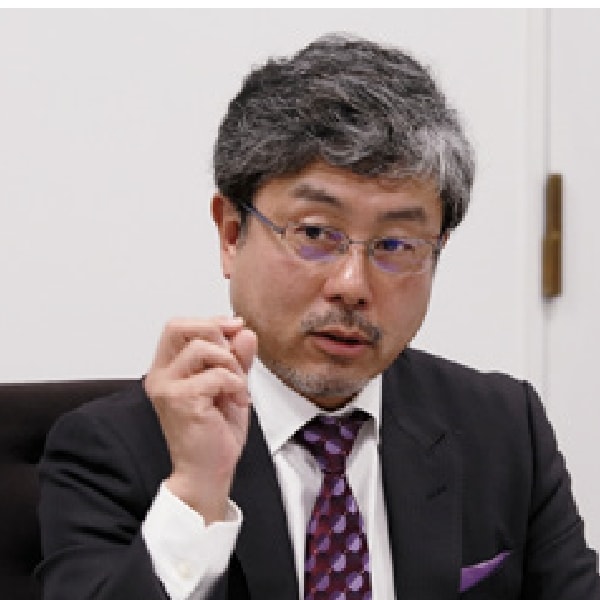
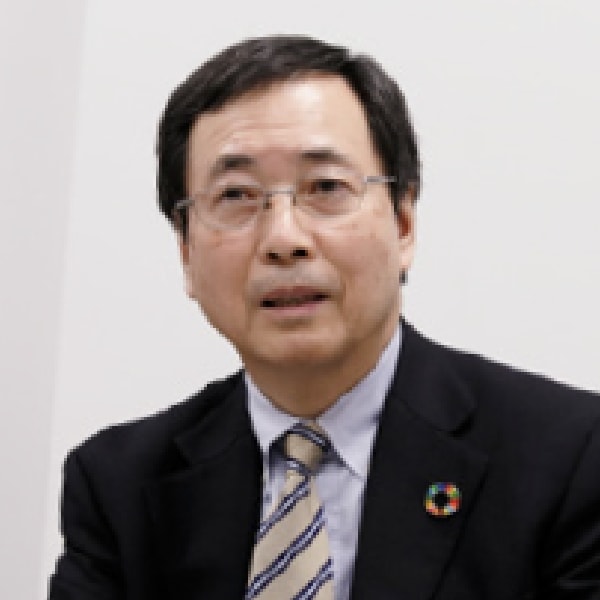
Nippon Soda
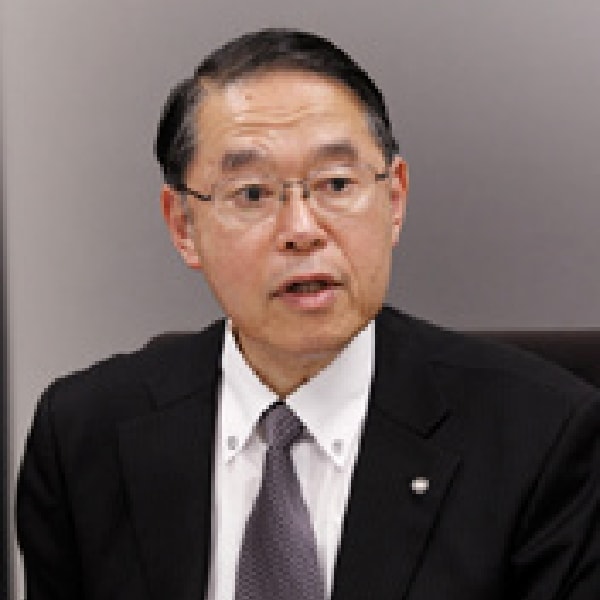
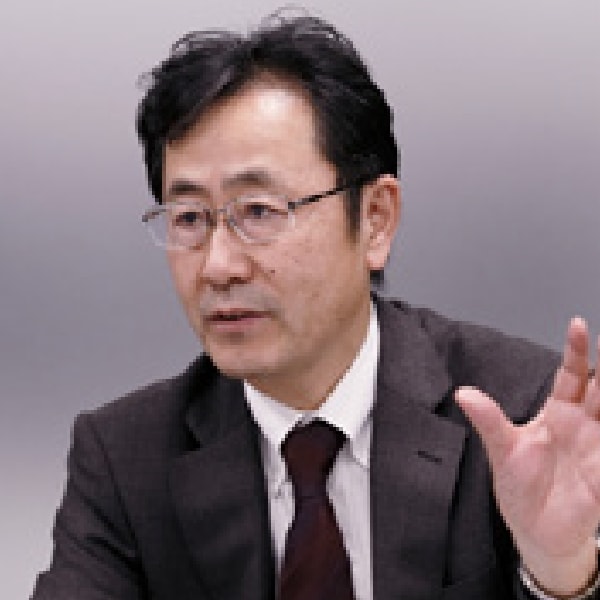
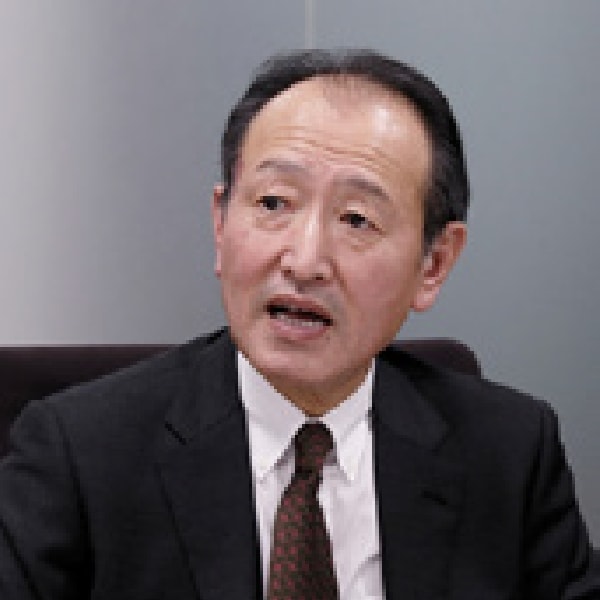
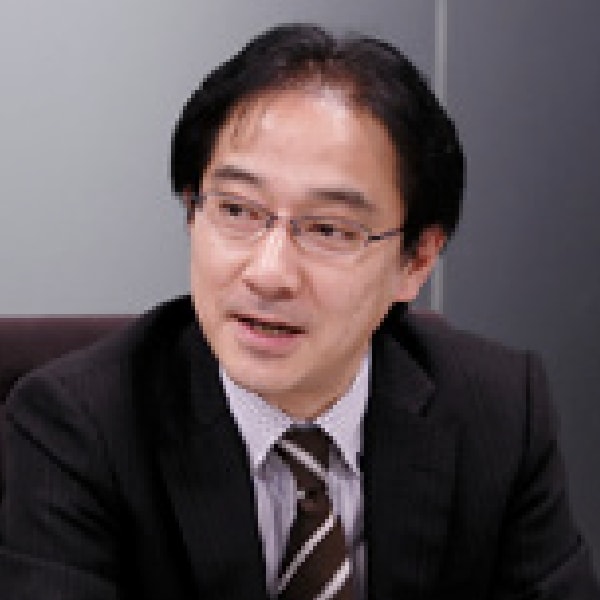
Note: The position and job titles of the participants are those effective as of December 2017.
Note: Titles omitted in the text
Improving CSR activities through opportunities for communication
In the stakeholder dialogue held last fiscal year, we sought advice from the perspective of how to incorporate and connect social issues that are associated with “the Nippon Soda’s CSR activities to improve corporate value” with our business in three domains: agriculture, the environment and information. Based on the opinions gathered, which have been shared among all departments, we are having productive discussions to find clues for the development of new business projects.
We have started in fiscal 2019 to identify materiality issues in the health care domain. We have also expanded the Nippon Soda Group’s activity domains that aim to contribute to society through products from three to four domains, as well as increased the number of Sustainable Development Goals (SDGs) we should aim to achieve from four in the last year to nine in fiscal 2019.
The objective of the dialogue with experts held in fiscal 2018 was to promote engagement to help the PDCA cycle of CSR activities to “spiral up.”
Efforts to address materiality issues in the four domains
agriculture domain
Nippon Soda: In the agriculture domain, with the aim of contributing to sustainable agriculture, we take two opposite approaches in our research and development of biopesticides: inside-out and outside-in. We are also developing new agents that enable effective agricultural production without being affected by climate conditions. Our efforts include research on plant growth regulators designed to increase high-temperature tolerance and desiccation tolerance.
health care domain
Nippon Soda: In the health care domain, we have identified a new materiality issue associated with NISSO-HPC for fiscal 2019, which aims to provide medicines that are easier for patients to take. NISSO-HPC, which is used in about 57% of drug products in Japan, is effective in reducing tablet sizes and maintaining the efficacy of drugs over long hours. By reducing the burden on patients of all ages, from children to the elderly, related to taking a drug, we hope to contribute to achieving a society where people can enjoy health and wellbeing.
environment domain
Nippon Soda:
In the environment domain, in November 2017, we completed acquisition of a plant health business from Zoetis Japan, including Green Guard, an agent for preventing pine tree withering. After assessing the effects of Green Guard, which is designed to be injected into pine trunks, we have concluded that it can help reduce environmental impacts. Based on this result, we have added contribution to greening/landscape preservation as a new materiality issue.
In last year’s dialogue, it was suggested that it might be possible to expand the scope of application of Nippon Soda’s technology for toilets for disaster use. In response, we are developing a toilet for those who need long-term care. In order to cope with the aging population, we are aiming to launch this product into the market in the near future.
information domain
Nippon Soda:
In the information domain, as an environmentally conscious chemical manufacturer with its own accumulated manufacturing technologies, we comply with the Industrial Safety and Health Act and other laws and regulations. We also perform the necessary registrations required under the Act on the Evaluation of Chemical Substances and Regulation of Their Manufacture, etc. Furthermore, we are discussing how to create products that contribute to resolving social issues in an age where we are expected to take quick action to cope with the future innovation of digital devices and to meet increasingly diversified user needs.
In last year’s dialogue, the relationship between chemical materials and universal design was also pointed out. With a focus on how to communicate the relationship between chemical materials and universal design to children, the next generation, we would like to consider incorporating children’s opinions into the development of solutions in the future.
Seki:
The Charter of Corporate Behavior of Keidanren (the Japan Business Federation) was revised in November 2017. In the revision, emphasis was placed on the concept of “Society 5.0 for SDGs,” which aims to contribute to achieving SDGs by creating a human-centered super smart society. The major focus of the revision is to encourage Japanese industry to provide as many solutions as possible. In this regard as well, addressing any of the materiality issues you have identified is a promising step toward the future. I encourage you to continue your efforts.
You seem to be too reserved in terms of your ambitions for achieving SDGs. If there is a goal you have failed to achieve, you should at least express your intention to achieve it by 2030, instead of giving up and excluding it from the list of future goals. I think you should be more positive, even if it seems like a pipe dream.
Another point I would like to make is about transformation unique to a chemical company. You should communicate to young people about how the power of chemistry can play a part in drastically changing people’s lifestyles, making our society function much more efficiently, or producing terminals that are easy for anybody to use.
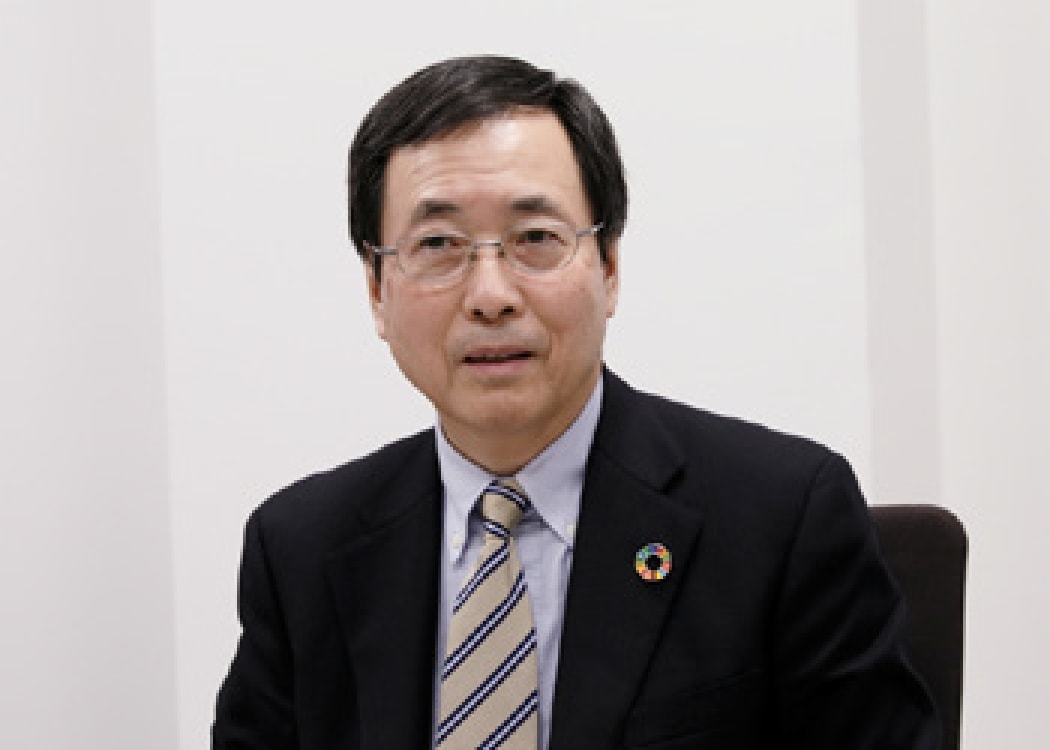
Materiality with an eye toward medium- and long-term growth
Nippon Soda:
People have increasing expectations for chemical companies to provide functions in addition to products. Our priority is on meeting our customers’ needs. At the same time, we have recently come to the conclusion that it is difficult to create something new unless we understand the thoughts and needs not only of customers but also of users.
In this context, we have started, for the first time, displaying our products, such as Hi-chlon and a urinary calculus removal agent for toilets, at exhibitions of athletic gyms. Through direct communications with users of our products on such occasions, we have received many comments that make us aware of new perspectives. For example, some visitors to such exhibitions told us that Hi-chlon alone is sometimes not convenient to use. In response, we developed an automated disinfection system using Hi-chlon, which enables people to use the agent easily without touching it with their hands.
In the process of achieving medium- and long-term business growth, it is essential to develop products that can lead to new business opportunities. We are sure that we can provide products that better meet the expectations of the public by making comprehensive proposals based on our own technology and manufacturing capabilities to cope with issues raised by customers and social demands.
Yamazaki:
It goes without saying that the Nippon Soda Group’s “CSR activities to improve the corporate value” constitute materiality with an eye toward medium- and long-term growth, which cannot be achieved without the commitment of management. “CSR activities to protect the corporate value” and “social activities” are within the framework incorporating responsible care and ISO 26000. I think you may still need to sort out the priority issues of these activities in a more organized manner. I recommend that you identify possible downside risks associated with these activities in the process of pursuing medium- and long-term business growth.
I think “initiatives for the next generation” is a very important theme. I recommend that you also identify impacts of employee satisfaction (ES)related issues, which can affect safety and human resources, on medium- and long-term business growth from the perspective of non-financial information. I believe this will help you identify issues that you should address in the future.
I suggest that you plan the path of your company’s growth over a long span of 10, 20 and 30 years, which I’m sure will help you develop a background story about how to create the Nippon Soda Group’s value. In that process, I recommend that you assess materiality in terms of CSR activities that will help create business opportunities and support medium- and long-term growth to protect the company, while taking into account the increasing expectations of society for sustainable development.
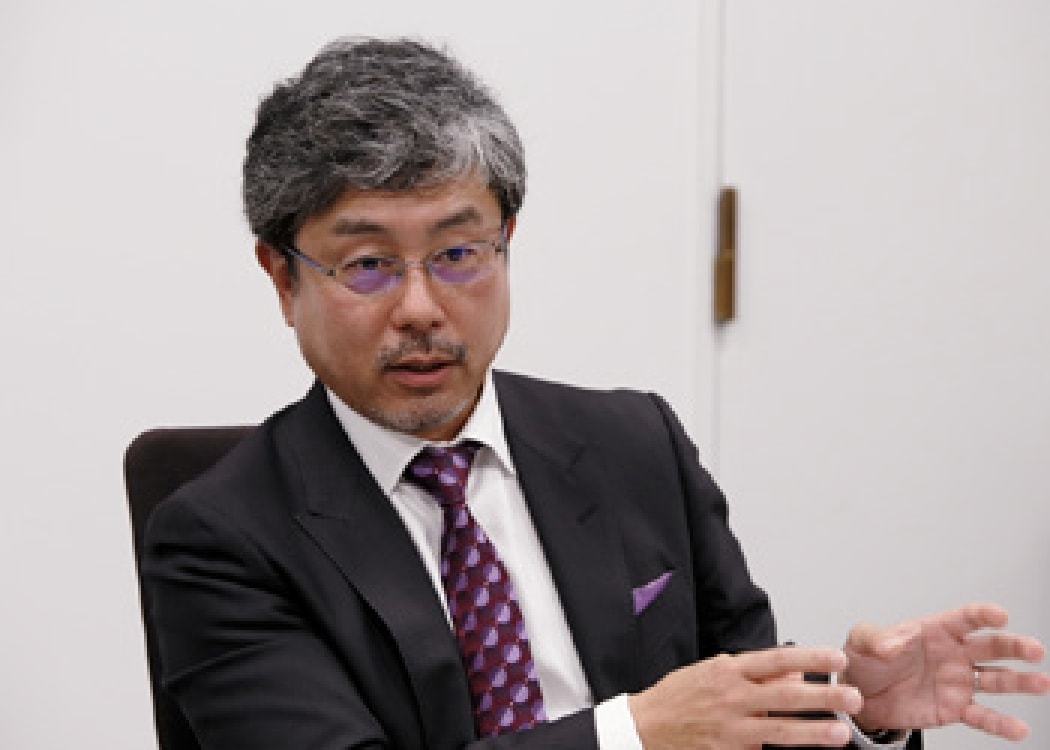
Seki:
I fully agree with what Mr. Yamazaki has said. For example, climate-related information has been categorized as non-financial information but, recently, I think such information surely has come to be regarded as financial information. According to the TCFD’s*1 report, in the process of significant changes in regulations and markets through the long-term transition toward a low-carbon society, companies are required to disclose future-oriented information, including their business strategy to respond to such changes. The TCFD recommends that companies perform scenario analysis to assess climate-related risks and opportunities. It will become important to disclose information on such risks and opportunities from a long-term perspective.
I don’t think that the SDGs contain no element of social contribution at all; but I think they rather offer huge business opportunities. In other words, if there are unmet needs and if a company can provide business solutions to fulfill them, this will be a business opportunity.
With regard to the classification of materiality, the main social risk and opportunity lie in human rights. From this perspective, I think that consumer issues, human rights and labor issues for employees, and fair operating practices, which were classified as materiality issues under “social activities,” should be included under the category of “CSR activities to protect the corporate value.” Companies are now expected to have proactive dialogues with the public. In response to this trend, I strongly recommend that you assess human rights risks across the value chain and also re-categorize materiality issues in “social activities.”
*1. Task Force on Climate-related Financial Disclosures
Improvement in CSR activities that leads to sustainable development
Nippon Soda:
The dialogue helped us realize that there are different approaches, for example, to social contribution and ESG investment. In this and other respects as well, the dialogue provided us with an opportunity to reconsider our products from new perspectives and in light of new concepts
With regard to SDGs, after the dialogue, we started a new discussion related to Goal 17 (Strengthen the means of implementation and revitalize the global partnership for sustainable development) of the SDGs. We have offices in Bangkok and India and an affiliated company in Brazil, which are engaged in agriculture-related business. We are currently discussing with personnel in charge at other departments the possibility of partnerships with local companies and industrial organizations as well as what solutions are possible through collaboration with them. We believe these efforts at a local level can lead to activities that help improve the medium- and long-term corporate value of the Nippon Soda Group.
Yamazaki:
In the dialogue, I had the impression that you have been implementing CSR activities in a meticulous and wellorganized manner. I applaud your efforts as excellent. In the future, I would like to focus my attention on the process whereby each effort will be more deeply integrated with the medium- and long-term strategies.
All companies seem to have difficulty involving individual employees and translating theory into practice. Since efforts to get employees involved and put theory into practice are very important, I hope you will make untiring efforts to further improve relevant activities.
Seki:
One year has passed since the last dialogue. I appreciate your sincere efforts in the last 12 months. I got the sense that the overall concept behind your CSR activities has been much better organized than the last year. I also think that the step-up program and your improved PDCA cycle have been implemented in a well-harmonized manner.
In particular, with regard to “CSR activities to improve the corporate value,” progress was made in discussions and efforts. Because your company aims to achieve CSR management that helps build a sustainable society, you should always pay careful attention to ensure that all the necessary elements to achieve this goal are there. Please keep this in mind at every step of the way in CSR management.
CSR Activities to Improve Corporate Value
(December 2016)
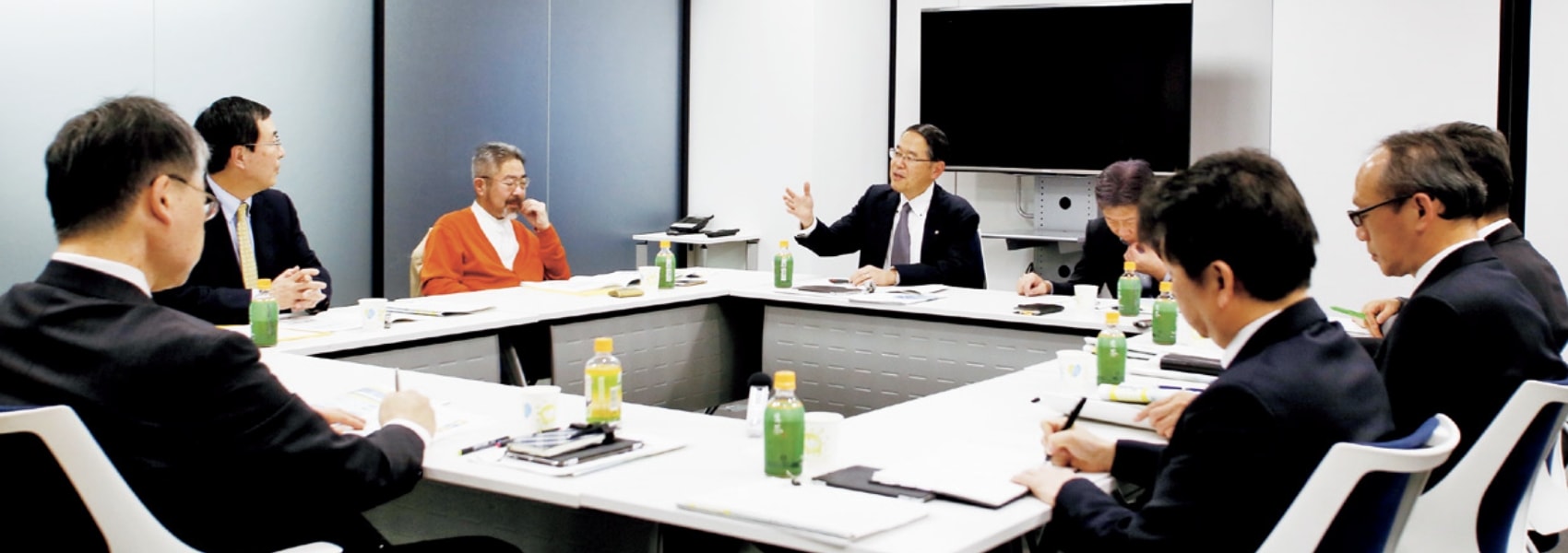
Materiality as defined by Nippon Soda and CSR activities to improve corporate value
A stakeholder dialogue was held on the theme of “CSR activities to improve corporate value” with experts from outside the Nippon Soda Group for the purpose of increasing the positive effect we can have on society as a chemical company, and for promoting strategic CSR that will help build a sustainable society.
The Nippon Soda Group is striving to build a sustainable society by addressing important CSR issues (materiality) that were identified in 2016. The materiality identification process was conducted by implementing a materiality analysis, in addition to evaluating its appropriateness, through dialogue with experts.
In 2017, we determined KPIs in accordance with each materiality issue for the three areas of “CSR activities to improve corporate value,” “CSR activities to protect corporate value” and “social activities,” and held an expert dialogue on the theme of “CSR activities to improve corporate value,” which is also a theme associated with the SDGs. During the dialogue, we received a variety of advice on activities that would enable us to improve the corporate value of the Nippon Soda Group, such as creating new solutions in the existing business domains and developing unique innovations as a chemical company.
The developed KPIs have been established as common goals for the entire Nippon Soda Group. This will serve to help us realize materiality and improve our performance in our CSR activities overall. Furthermore, we will manage our progress with the identified materiality issues and KPIs so as to steadily advance the Group’s activities toward the development of a sustainable society.
Note: At the stakeholder dialogue held on December 9, 2016, we held discussions on materiality of the three important domains of agriculture, the environment and information in relation to CSR activities to improve corporate value. To these, the fourth domain of health care was added in April 2017.
Participants
Experts from outside the Nippon Soda Group


Nippon Soda
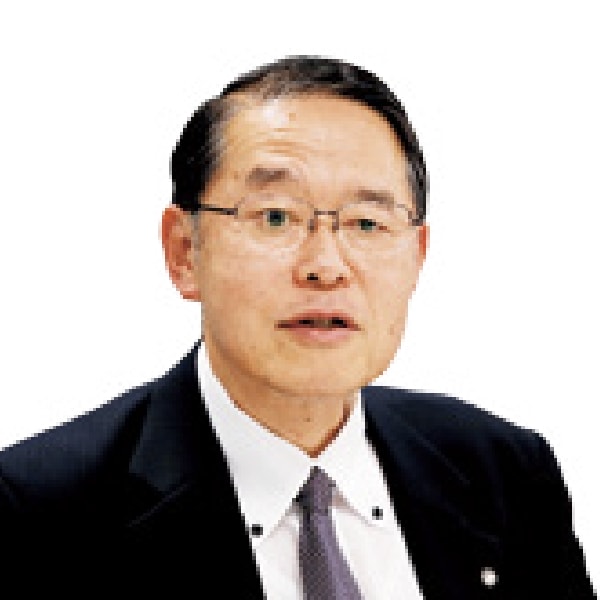
Note: The position and job titles of the participants are those effective as of December 2016.
Note: Titles omitted in the text

Reviewing business from the outside in1 will help connect social issues with it
Damage inflicted on agriculture as a result of climate change is an important global issue that needs to be resolved. This was also the theme of the 22nd United Nations Climate Change Conference (COP22) held in Morocco in 2016. Against this background, smart agriculture is attracting attention as a new solution toward resolving such agricultural issues. Perhaps the Nippon Soda Group should also look into this. I recommend that you acquire an understanding of a broad range of social issues associated with agriculture, such as water conservation in agricultural irrigation and the advancement of greening efforts, and take a fresh look at things based on an outside-in perspective of how your business could be utilized to further such efforts.
Efforts in tackling SDGs are effective, especially because this is an era of transformation2
The high level of quality of RC activities conducted by chemical companies is well known throughout the world, but I’d like to applaud the Nippon Soda Group’s attitude in establishing even higher goals in their efforts with the SDGs and G4. In the chemical field, we will probably see the birth of such solutions in the form of materials and products that will help us move away from a carbon-based economy. We will probably find even more touch points for the 169 targets of the SDGs. I look forward to the transformative benefits of the power of chemistry. Also, based on the fact that today’s world requires active dialogue with society, I hope that you will also consider risks to human rights throughout the entire value chain.

There are expectations for unique innovation and collaboration as can only be achieved by a chemical manufacturer
I hope that you will look for possibilities for unique innovation, in a manner that is not inhibited by past failures, as you proceed with your efforts in promoting CSR that improves corporate value. The Nippon Soda Group is conducting its business activities with integrity, but it is lacking in uniqueness. Instead of looking only at productivity, how about simultaneously seeking to add value with the provided solutions? Going forward, BtoB3 companies will also move into the realm of BtoC4. Therefore, it may be a pivotal moment to redefine your value chain into one that incorporates consumers’ perspective, which will require open communication with society. If you succeed in doing so as a chemical company, further public expectations will be placed on Nippon Soda.
Taking inventory of your business, from a perspective of impact, will add depth to the value creation story
There is a limit to what one company can achieve in solving social issues on a global scale. Going forward, I think our era will be about creating value with a perspective oriented toward collaboration. Thus, I hope you will actively look into opportunities for working in collaboration with other companies. For example, you might propose including a business structure based on the Nippon Soda Group’s core competence within a mega system of other companies, such as the agricultural plants being constructed in Southeast Asia. Another effective method for seeking new possibilities is to benchmark specific suppliers of products in the value chain. I hope you will develop a new story of value creation for Nippon Soda by being both meticulous and bold in your efforts.
The Nippon Soda Group—Closing in on the Future
A robust discussion was held on making social contributions through business under the theme of conducting CSR activities to improve corporate value. The following are summaries of the points raised during the discussion.
Agriculture
Contribution to ensuring food safety and security and sustainable agriculture using agrochemicals
- Worldwide increase in food and feed production through agrichemicals
- Diversification in plant protection through biopesticides
- Improvement of user safety and reduction of environmental impact
A major role of agrichemicals is to increase agricultural harvests, with consideration for the region’s environmental characteristics. Thus, the Nippon Soda Group is in a position to help make contributions in this area toward eliminating hunger in developing countries. Additionally, as a developer and manufacturer of agrochemicals, we consider improving user safety and reducing environmental impact as being essential aspects of our CSR activities. With regard to biopesticides, we are considering business possibilities and social values from multiple perspectives. In the future, we would like to provide new solutions for not only agrochemicals but also greening issues, and for the protection of pets and livestock animals.
The worldwide trend today is to make visible the relationship that exists between companies and the protection of the ecosystem. Perhaps it would be possible to utilize impact evaluation on the scope and method of agrochemical usage in assessing the level of ecosystem protection. The challenge of realizing biodiversity through the use of biopesticides will help develop a sustainable agricultural environment. We hope that you will advance such efforts as a unique innovation that enhances the corporate value of the Nippon Soda Group. Awareness-building activities in relation to agrochemicals in developing countries is an important part of risk communication, but in the future, instead of targeting such communication only at people affiliated with agriculture, we hope that you will expand such dialogues to include residents as well as students who will be the next generation of agricultural industry workers.
Environment
Contribution to ensuring the environmentally sound recycling of resources using chemistry (technical competence)
- Reducing environmental impact through products for resource recycling (HI-CHLON and HIDION)
- Contributing to PCB detoxification
HI-CHLON, which contributes to the stable supply of water resources, is a product that has outstanding functionality and is capable of treating a substantial amount of water. As such, demand for this product is expanding overseas, such as in Europe, the Middle East and Asia.
As for PCB detoxification treatment as stipulated in the Stockholm Convention, public calls for this have grown in the domestic market. The demand for HIDION, which processes heavy metals contained in fly ash1 produced during waste incineration, is expected to increase as rules and regulations become increasingly stringent.
1 “Fly ash” refers to ashes and dust collected at the gas emission exit of the dust collection equipment, as opposed to the main ash (incineration ash) emitted from the bottom of the incinerator.
These can be said to be technologies with extremely high social consciousness toward contributing to global environmental conservation. Since this is a field of business that is interlocked with environmental policies of the respective countries, there may be aspects that make it difficult to actively promote these products in some countries. However, the SDGs clearly state that private companies should contribute to resolving social issues in different regions. In the future, we are likely to see increased opportunities for existing businesses to make contributions toward global issues. From the perspective of recycling water, it might be worth thinking about expanding the scope of application of the technologies behind Nippon Soda’s disaster toilet, the Suketto-Toilet, toward helping with the serious problem of toilets in developing countries.
Information
Contribution to the development of information appliances friendly to the environment and people by supplying high-function materials
- Contributing through materials that promote weight reduction and improved operability of mobile devices
- Providing materials to support universal design
We supply polymers used in approximately 400 million high-end mobile devices by utilizing highly advanced polymer technologies that have been nurtured over many years. At the dawn of the IoT (Internet of Things) era, mobile information devices that are highly lightweight and easy to operate are becoming essential to everyday life.
We will continue to make contributions by supplying high valueadded materials in order to realize ease of use for all persons, including disabled persons, seniors and children.
Instead of looking only at the impact in terms of the number of mobile devices (terminals), we would like for you to create an opportunity to discuss specific effects that looks at what values were provided to people who use the technologies of the Nippon Soda Group. By incorporating the perspectives of stakeholders into existing technologies, we think it may elevate such technologies, transforming them into solutions where the social aspects stand out even more. Furthermore, how about thinking about projects that communicate the relationship between chemical materials and universal design to children? This would be an initiative with high social value that would lead to the creation of new solutions for the next generation.
Reflections after the dialogue
Differences in what’s seen from within and from without

The dialogue this time made me realize that the experts are able to see things that we do not notice, since we are looking at our customers and stakeholders from within Nippon Soda through the lens of our products and technologies.
The following perspectives gave us major clues on how we should advance our social contribution activities through our business in the future: reviewing things from an outsider’s perspective will help connect social issues with our business; efforts in tackling SDGs are effective, especially because this is an era of transformation; there are expectations for the kind of unique innovation and collaboration that can only be achieved by a chemical manufacturer; and taking inventory of our business, from the perspective of impact, will add depth to the story of value creation.
For example, I am now thinking about the following, which I had not noticed when I was looking at things from within: assessing the effects on the ecosystem through impact evaluation of the scope and method of agrochemical usage; making global contributions through the use of the Suketto-Toilet; and initiatives to communicate how chemical materials are associated with universal design to the next generation of children.
I hope to make use of what we have learned in our future CSR activities to improve corporate value.
Positioning of the stakeholder dialogue
The process for identifying materiality that the Nippon Soda Group needs to be involved in was advanced by the following four major steps.
- Step1Identification and prioritization
- Step2Validation and identification through expert dialogue
- Step3Reporting to and approval from the Nippon Soda Group’s management
- Step4Implementation of PDCA
The previous dialogue that was held in 2015 was positioned under Step 2. This time, being the second stakeholder dialogue, we received advice on those things that were in the execution stage of Step 4 and on our efforts and KPIs with regard to initiatives on materiality that were implemented over the past year.
Identification of material issues to be addressed by the Nippon Soda Group
(November 2015)
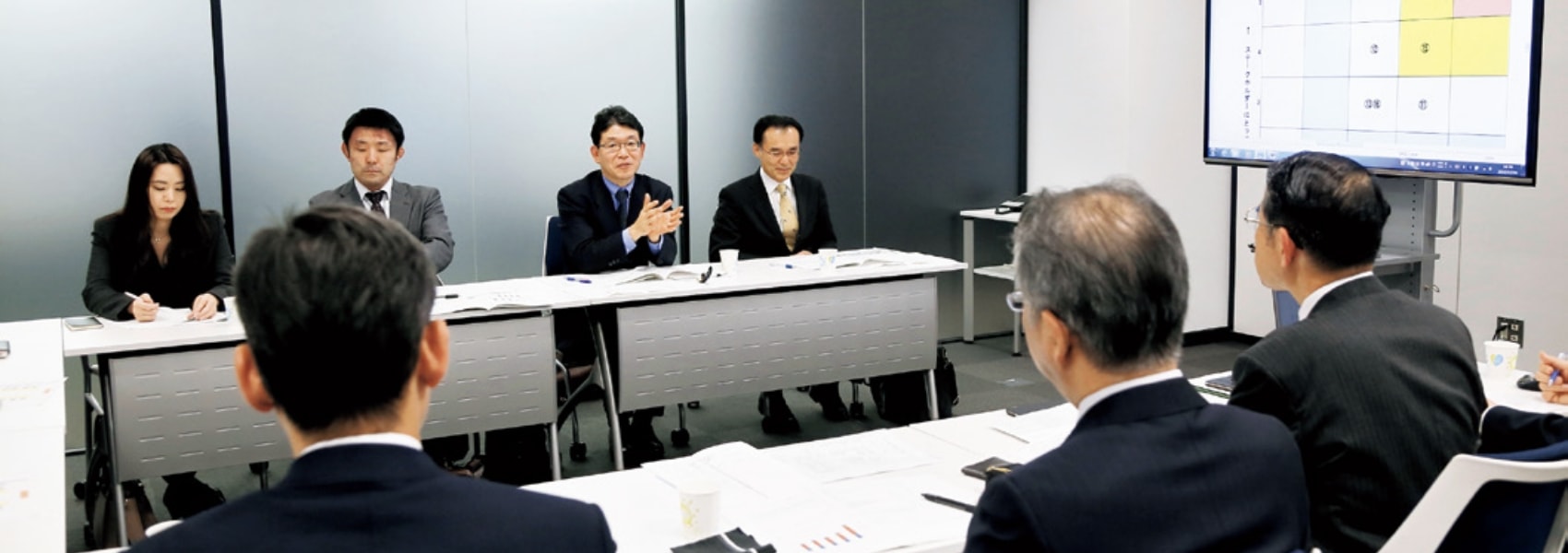
A stakeholder dialogue involving the participation of experts was held regarding the identification of material issues that should be addressed by the Nippon Soda Group.
Participants
Experts from outside the Nippon Soda Group
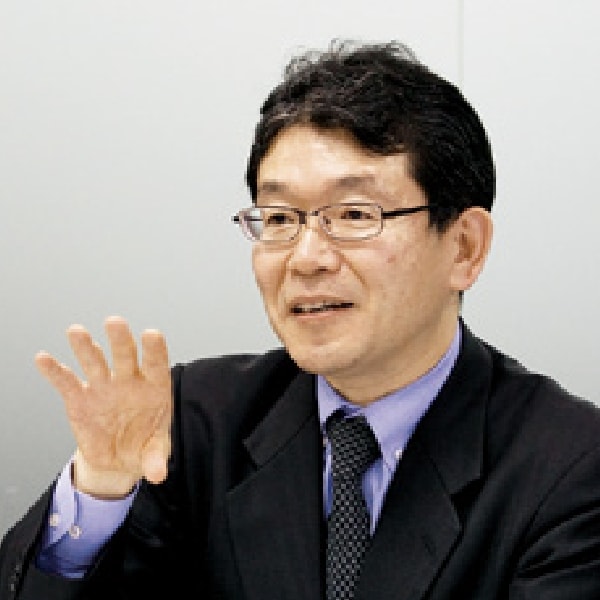
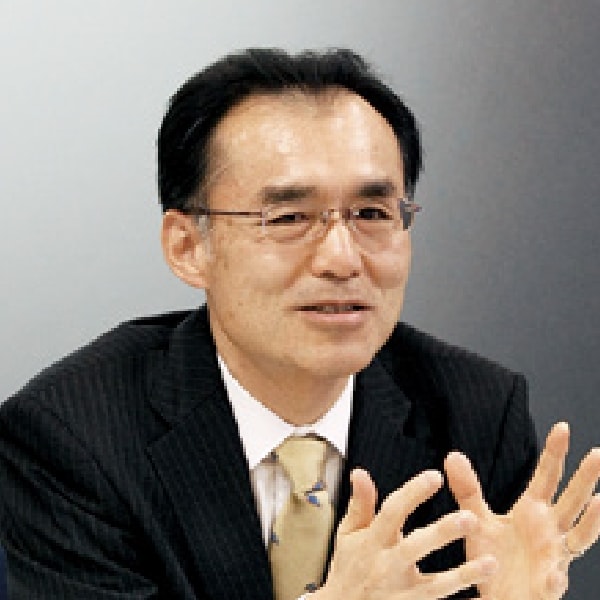
Observers
Nippon Soda
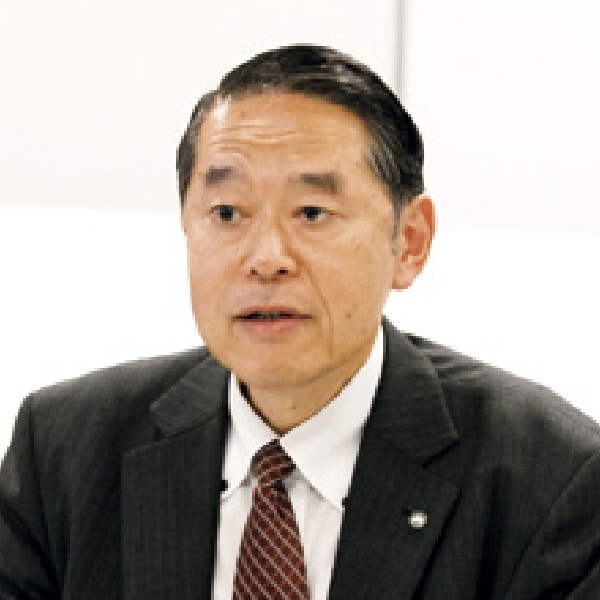
Note: The position and job titles of the participants are those effective as of November 2015.
Note: Titles omitted in the text
We received many opinions from external experts regarding the CSR activities of the Nippon Soda Group.
In materiality identification for the Nippon Soda Group, representatives of the management team and others had many lively discussions regarding the association between products and services in each of the domains of agriculture, the environment and information and social issues, based on opinions we received from various stakeholders in the past. When we had identified a certain general direction to pursue, in November 2015 we invited external experts to participate in a stakeholder dialogue with the aim of ensuring the objectivity of the Nippon Soda Group ideal and material issues to be identified.
At the dialogue, our staff in charge provided participants with explanations of materiality identification and prioritization and of the materiality identification process in three specific domains (agriculture, the environment and information).
Following the explanations, external experts provided insights and comments on the association between identified material issues and social issues, and impacts that the business of the Nippon Soda Group has on social issues, as well as methods for assessing such impacts. They also reviewed the growth of the Nippon Soda Group and the outcome of the implementation of materiality analysis, and expressed their expectations. In addition, they shared their views on the potential of the Nippon Soda Group 10 years and 20 years from now.
Participants also had a lively discussion on the social significance of CSR activities to improve the corporate value (materiality identification) and CSR activities to protect the corporate value, which the Nippon Soda Group started this fiscal year.

Contribute to society with “offensive” elements hidden in “defensive” elements
I was fully convinced that you not only consider the materiality of the company but also carefully consider impacts on society. In implementing activities within the G4 framework, it is important to communicate the story behind non-financial information to stakeholders. With regard to KPIs you are going to discuss, I would suggest that, instead of going deep into details at a product level, you aim to provide qualitative data in such a way as to avoid being misunderstood.
I think it is a good idea to categorize CSR activities into two groups: CSR activities to protect the corporate value and CSR activities to improve the corporate value. I would like to add here that there are “offensive” elements in RC activities, which focus on downside risk management, and that, if you can identify such elements, you can show your company’s contribution from various perspectives.
In the agricultural domain, I’m interested in how your company will approach key issues, such as population increase, risks relating to pests and risks relating to climate change, which are medium- and long-term issues that you cannot avoid; and what messages will be generated through the materiality identification process.

Expectation for the creation of businesses that solve social issues
You have changed direction from risk communication to G4, which requires more detailed communication to address social issues. I understand that you are now in the first phase, where you focus on products useful to society. I expect that the materiality assessment will help you create businesses useful to society from a long-term perspective and share the process with stakeholders.
In the information domain, I would recommend that you describe your company’s approach to social issues in a logical manner, such as sharing your perspective on product life cycles and your contribution to the senior citizen market.
It seems that the ideal state you can aim to achieve at present and growth into the future are mixed together in your discussion. I strongly encourage you to add the potential for new business projects that will bring Nippon Soda’s strengths to bear on social issues to your discussion. Writing a story describing your long-term growth will inevitably lead you to the next activity phase.
Reflections after the dialogue
Toward the sustainable development of society and the company

In cross-departmental discussions in the materiality identification process, we were able to itemize existing business projects and areas with potential for the future from the perspective of CSR activities to improve corporate value, which have positive impacts on society. To promote the materiality concept throughout the Nippon Soda Group, we will have regular opportunities to discuss with stakeholders the value of providing society with our company’s products and services and engaging in our corporate activities. If the Nippon Soda Group can contribute to addressing SDGs and social issues in different regions through its activities, I think we can achieve the sustainable development of society and the company.
The next step will include discussions on the development of KPIs in order to achieve our ideal goals 10 years and 20 years from now.


